
Recently Viewed

 Gooseneck Bench Mounted Infrared Sensor Tap - Battery Powered - T-3MSS-GHMST21B
Gooseneck Bench Mounted Infrared Sensor Tap - Battery Powered - T-3MSS-GHMST21B

 Adler Pass Through Upright Dishwasher 1PH - DWA2001
Adler Pass Through Upright Dishwasher 1PH - DWA2001
620(W) x 1491 (1980 Open)(H) x 750(D)mm

 Adler Undercounter Dishwasher - DWA2050
Adler Undercounter Dishwasher - DWA2050
575(W) x 805(H) x 600(D)mm

 Stainless Steel Dual Hob Mounted Tap Body - T-3M63134
Stainless Steel Dual Hob Mounted Tap Body - T-3M63134

 Watermark 330Mm High Sink Mixer HD4257
Watermark 330Mm High Sink Mixer HD4257
50(W) x 225(D) x 330(H)mm

 Lever Handle Pillar Tap - 6 Second Timed Flow - T-3MSS-PT6L
Lever Handle Pillar Tap - 6 Second Timed Flow - T-3MSS-PT6L

 Compact Stainless Steel Wall Stops And Elbow Pre Rinse Unit - T-3M53810-C
Compact Stainless Steel Wall Stops And Elbow Pre Rinse Unit - T-3M53810-C

 Stainless Steel Bench Mount Pre Rinse Unit With 12" Pot Filler - No Stops - T-3M53212
Stainless Steel Bench Mount Pre Rinse Unit With 12" Pot Filler - No Stops - T-3M53212

 Stainless Steel Hob Mount Pre Rinse Unit - No Stops - T-3M53200
Stainless Steel Hob Mount Pre Rinse Unit - No Stops - T-3M53200

 Stainless Steel Dual Bench Mount Tap Body with 12" Spout - T-3MDH12
Stainless Steel Dual Bench Mount Tap Body with 12" Spout - T-3MDH12
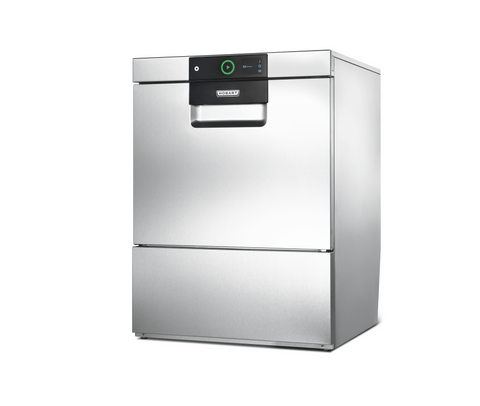

 Hobart PROFI Glass/Dishwasher - FX-90C
Hobart PROFI Glass/Dishwasher - FX-90C
600(W) x 825(H) x 602(D)mm
711(W) x 1470(H) x 742(D)mm

 Modular Systems Stainless Steel Double Deep Pot Sink 1410-6-DSB
Modular Systems Stainless Steel Double Deep Pot Sink 1410-6-DSB
1410(W) x 600(D) x 900(H)mm

 Hobart HYLINE Universal Detergent - Med To Hard Water - Chlorine Free 5L - HLB-205L - 1 Carton
Hobart HYLINE Universal Detergent - Med To Hard Water - Chlorine Free 5L - HLB-205L - 1 Carton
385(W) x 70(H) x 385(D)mm
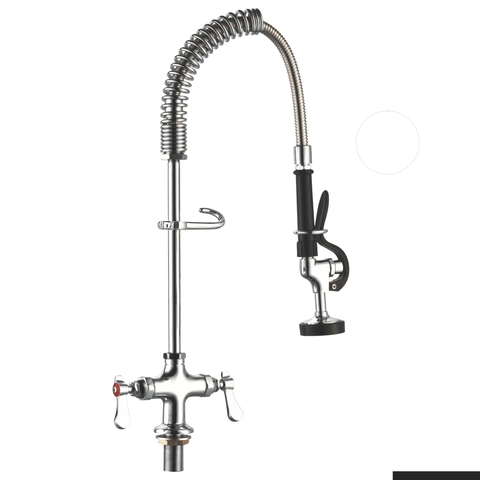

 Sunmixer Mini Pre Rinse Unit with 180mm Riser and 560mm Hose T98001MN-1
Sunmixer Mini Pre Rinse Unit with 180mm Riser and 560mm Hose T98001MN-1

 Sunmixer Deck Mounted Faucet with 2 side-handles T20138
Sunmixer Deck Mounted Faucet with 2 side-handles T20138
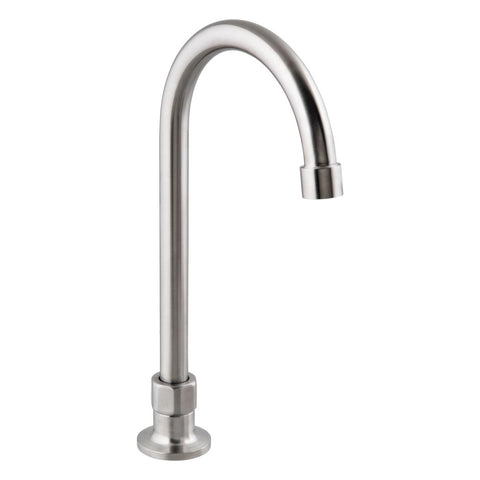

 Stainless Steel Single Bench Mount (No Stops) with 12" Gooseneck Spout - T-3MHOG12
Stainless Steel Single Bench Mount (No Stops) with 12" Gooseneck Spout - T-3MHOG12

 Compact Lever Handle Bubbler - T-3MSS-BUBCLH
Compact Lever Handle Bubbler - T-3MSS-BUBCLH

 Adler Undercounter Glasswasher - DWA2040
Adler Undercounter Glasswasher - DWA2040
480(W) x 828(H) x 517(D)mm
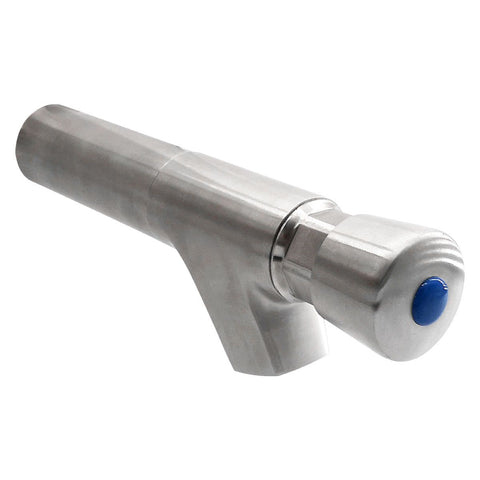

 Push Button Bib Tap - Mechanical Operation-On/Off - T-3MSS-BTMPB
Push Button Bib Tap - Mechanical Operation-On/Off - T-3MSS-BTMPB
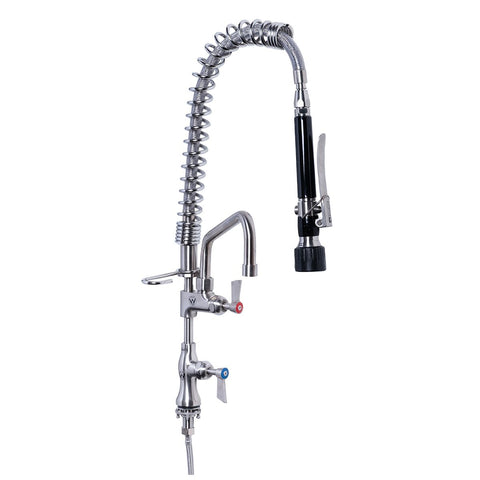

 Compact Stainless Steel Single Bench Mount Pre-Rinse with 6" Pot Filler - T-3M53106-C
Compact Stainless Steel Single Bench Mount Pre-Rinse with 6" Pot Filler - T-3M53106-C

 Compact Stainless Steel Exposed Wall Mounted Pre Rinse Unit With 12"Pot Filler - T-3M53473-C
Compact Stainless Steel Exposed Wall Mounted Pre Rinse Unit With 12"Pot Filler - T-3M53473-C

 Stainless Steel Wall Stops And Elbow Pre Rinse Unit With 6" Pot Filler - T-3M53816
Stainless Steel Wall Stops And Elbow Pre Rinse Unit With 6" Pot Filler - T-3M53816
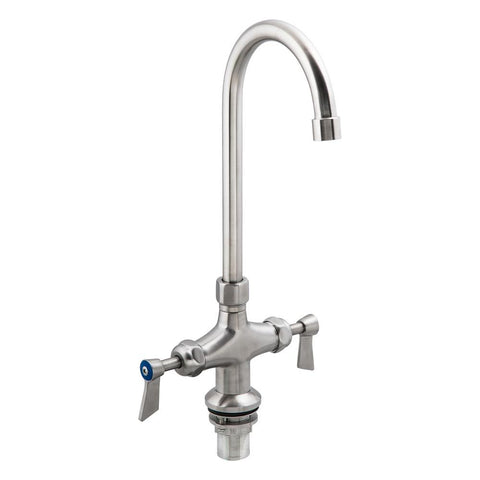

 Dual Bench Mount Body with Gooseneck Swivel 12" Spout - T-3MDHG12
Dual Bench Mount Body with Gooseneck Swivel 12" Spout - T-3MDHG12
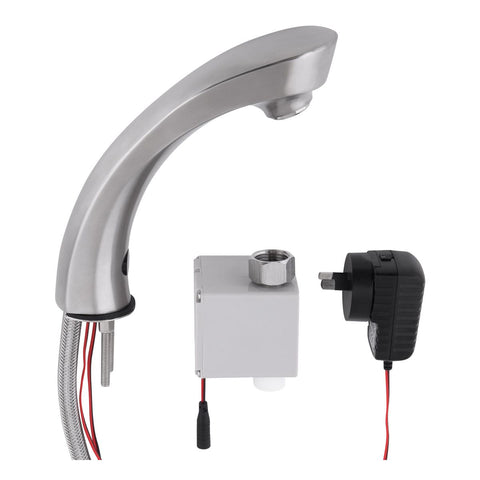

 Stainless Steel Hob Mounted Sensor Tap - Mains Powered - T-3MSS-HMSTM
Stainless Steel Hob Mounted Sensor Tap - Mains Powered - T-3MSS-HMSTM

 Modular Systems All Stainless Steel Dishwasher Bench Left Outlet WBBD7-0900L/A
Modular Systems All Stainless Steel Dishwasher Bench Left Outlet WBBD7-0900L/A
900(W) x 700(D) x 900(H)mm

 Hobart PROFI Amx W/ Vapostop Dishwasher - AMX-V
Hobart PROFI Amx W/ Vapostop Dishwasher - AMX-V
711(W) x 1510(H) x 815(D)mm
713(W) x 1510(H) x 815-915(D)mm

 Sunmixer Deck Mounted Faucet with Top Handle T20154
Sunmixer Deck Mounted Faucet with Top Handle T20154

 Sunmixer Wall Mounted Gooseneck Faucet with Front Handle T20139L
Sunmixer Wall Mounted Gooseneck Faucet with Front Handle T20139L

 Gooseneck Bench Mounted Infrared Sensor Tap - Mains Operated - T-3MSS-GHMST21M
Gooseneck Bench Mounted Infrared Sensor Tap - Mains Operated - T-3MSS-GHMST21M

 Push Button Wall Mount Bottle Filler - T-3MSS-BFP
Push Button Wall Mount Bottle Filler - T-3MSS-BFP

 Stainless Steel Wall Elbow and 8" Spout - T-3MWE08
Stainless Steel Wall Elbow and 8" Spout - T-3MWE08

 Hobart Glass Rack 385X385 For ECO404, ECO+G415, Gc & Gcroi - 139321-57
Hobart Glass Rack 385X385 For ECO404, ECO+G415, Gc & Gcroi - 139321-57
385(W) x 70(H) x 385(D)mm
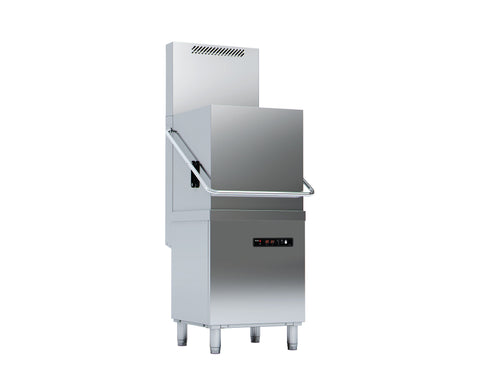

 Fagor Evo-Concept Pass-Through Dishwasher CO-142HRSBDD
Fagor Evo-Concept Pass-Through Dishwasher CO-142HRSBDD
630(W) x 750(D) x 2000(H)mm


 Push Button Bib Tap - 6 Second Timed Flow - T-3MSS-BT6PB
Push Button Bib Tap - 6 Second Timed Flow - T-3MSS-BT6PB

 Hobart Ro-I & Ro-S Replacement Carbon Pre Filter Cartridge - 01-294225-101
Hobart Ro-I & Ro-S Replacement Carbon Pre Filter Cartridge - 01-294225-101
600(W) x 825(H) x 602(D)mm
600(W) x 825(H) x 603(D)mm


 Compact Stainless Steel Exposed Wall Mounted Pre Rinse Unit With 6"Pot Filler - T-3M53449-C
Compact Stainless Steel Exposed Wall Mounted Pre Rinse Unit With 6"Pot Filler - T-3M53449-C

 Stainless Steel Wall Stops And Elbow Pre Rinse Unit With 12" Pot Filler - T-3M53822
Stainless Steel Wall Stops And Elbow Pre Rinse Unit With 12" Pot Filler - T-3M53822


 Stainless Steel Exposed Wall Mount Body with Gooseneck Swivel 12" Spout - T-3MEWG12
Stainless Steel Exposed Wall Mount Body with Gooseneck Swivel 12" Spout - T-3MEWG12
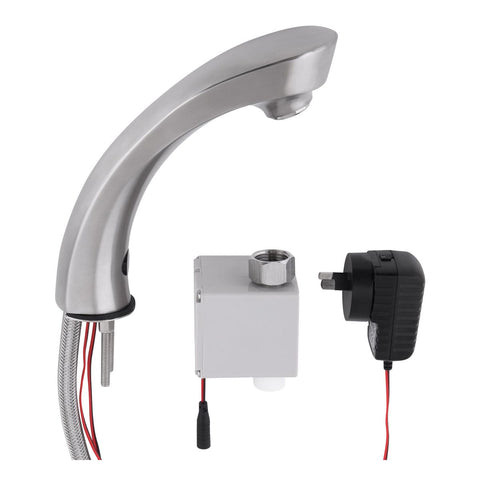

 Stainless Steel Hob Mounted Sensor Tap - Battery Powered - T-3MSS-HMSTB
Stainless Steel Hob Mounted Sensor Tap - Battery Powered - T-3MSS-HMSTB

 Hobart PROFI Twin Chamber Utensil Washer - UXT
Hobart PROFI Twin Chamber Utensil Washer - UXT
1275(W) x 1984(H) x 945(D)mm
1375(W) x 1984(H) x 945(D)mm
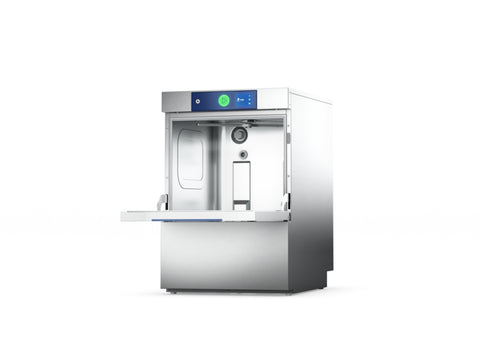

 Hobart PROFI Compact Width Glasswasher - GC-90C
Hobart PROFI Compact Width Glasswasher - GC-90C
460(W) x 700(H) x 590(D)mm
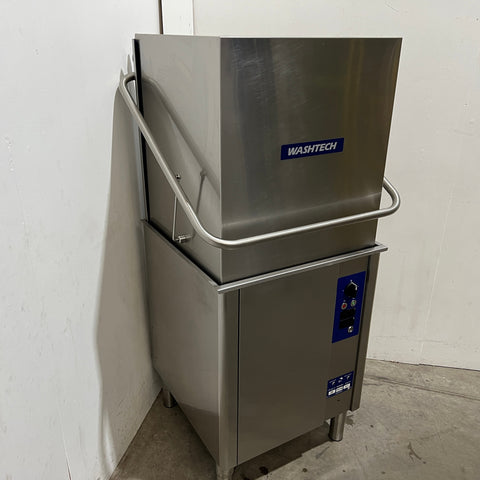

730W x 1530D x 720Hmm
730W x 720D x 1530Hmm

 Modular System Dishwasher Basket Stand 4 Tray 406227
Modular System Dishwasher Basket Stand 4 Tray 406227
550(W) x 520(D) x 850(H)mm

 Modular System Glasswasher Basket Stand 4 Tray - 415770
Modular System Glasswasher Basket Stand 4 Tray - 415770
450(W) x 520(D) x 850(H)mm
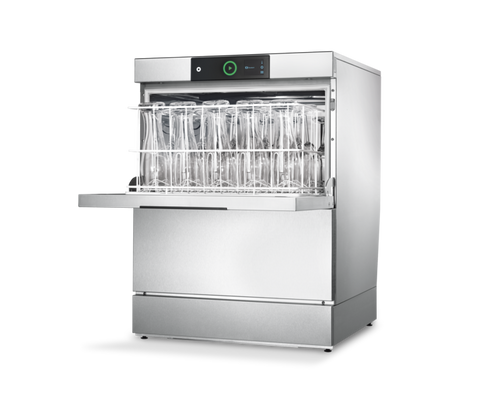

 Hobart PREMAX Compact Height Glasswasher Integrated Ro & Dryer - GPCROI-C
Hobart PREMAX Compact Height Glasswasher Integrated Ro & Dryer - GPCROI-C
576(W) x 820(H) x 604(D)mm
600(W) x 820(H) x 602(D)mm
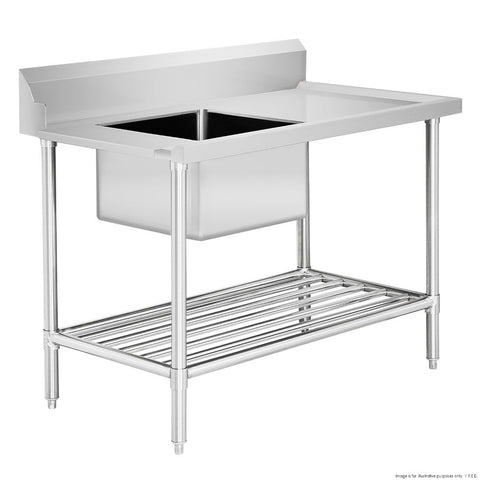

 Modular Systems SSBD7 Inlet Single Sink Dishwasher Bench - 1200-2400mm Width - Left/Right Inlet
Modular Systems SSBD7 Inlet Single Sink Dishwasher Bench - 1200-2400mm Width - Left/Right Inlet

 Modular Systems All Stainless Steel Dishwasher Bench Left Outlet WBBD7-1800L/A
Modular Systems All Stainless Steel Dishwasher Bench Left Outlet WBBD7-1800L/A
1800(W) x 700(D) x 900(H)mm
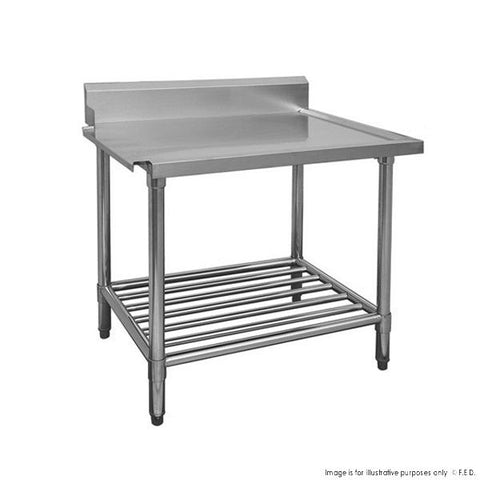
 Modular Systems All Stainless Steel Dishwasher Bench Left Outlet WBBD7-0600L/A
Modular Systems All Stainless Steel Dishwasher Bench Left Outlet WBBD7-0600L/A
600(W) x 700(D) x 900(H)mm

 Modular Systems Right Inlet Single Sink Dishwasher Bench SSBD7-1800R/A
Modular Systems Right Inlet Single Sink Dishwasher Bench SSBD7-1800R/A
1800(W) x 700(D) x 900(H)mm

 Modular Systems Right Inlet Single Sink Dishwasher Bench SSBD7-1500R/A
Modular Systems Right Inlet Single Sink Dishwasher Bench SSBD7-1500R/A
1500(W) x 700(D) x 900(H)mm

 Modular Systems Left Inlet Single Sink Dishwasher Bench SSBD7-1500L/A
Modular Systems Left Inlet Single Sink Dishwasher Bench SSBD7-1500L/A
1500(W) x 700(D) x 900(H)mm
No matter what kind of establishment you’re running or what you’re serving, commercial dishwashers are must-have appliances. Designed to efficiently and effectively clean and sanitise high volumes of dishes, cutlery and glassware, they help to keep your kitchen running at top capacity.
At Restaurant Equipment Online, we have a broad range to choose from with models to suit every establishment’s needs. Whether you want a compact model for a cafe or large high-capacity commercial dishwashers for your restaurant kitchen, you’ll find it here. Save time and labour hours by finding the perfect addition to your space, ensure you always have fresh plates, cutlery and glassware and explore the collection now. Shop online and get your dishwasher delivered anywhere in Australia with our nationwide shipping.
There are four key models of commercial dishwashers available, each with different capabilities and dimensions, meaning it’s easy to find an option that suits the needs of your business.
If you’re running a bar or need to be able to clean a high volume of glassware quickly and efficiently, glasswashers will likely be a valuable addition to your workspace. They’re small and compact, typically installed under benches for fast and easy access. Specially dedicated to glassware only, they’ll give you exceptional results and sparkling clear glass with every wash cycle.
When it comes to dishes and cutlery, underbench dishwashers offer a compact and effective means of getting everything clean. They’re ideal for smaller establishments like cafes and measure a similar size to a residential dishwasher but with the speed and efficiency of a commercial model. Due to their compact size, they don’t typically require steam extraction, making them convenient for smaller spaces.
For larger kitchens with higher demands and greater turnover, passthrough dishwashers are the next size and step up. They require more power to run and will typically also require steam extraction. Passthrough dishwashers are capable of cleaning anywhere from 700 to 900 dishes an hour, along with cutlery and glassware, ensuring you never run out at peak hours.
Finally, the largest and most comprehensive models are conveyor dishwashers. These are ideal for kitchens that need to wash over 1,000 dishes a day and are custom-made, modular commercial dishwashing setups.
Additionally to dishwashers themselves, you may also want to consider adding a pre-rinse station to your kitchen, with taps and rinse jets to remove food residue from plates before putting them in to be cleaned.
Choosing the right model of commercial dishwasher for your kitchen will come down to two key factors: how much space you have available and how many dishes you need to be able to clean.
We recommend measuring the space you have available, ensuring you account for the plumbing and total footprint of the dishwasher when it’s open. You’ll need to make sure there’s adequate space to move around the dishwasher while the door is open to maintain a good workflow in your kitchen.
From there, you can look at different models, their functionality and capacity and find one that’ll keep up with the demands of your kitchen. As a general guide, for smaller capacities and turnover, if you have a cafe or restaurant with 20 seats or less, an underbench option may be enough. For 30 to 100 seats, a passthrough dishwasher is a better choice to ensure you have enough capacity. For anything larger than 150 seats, you’ll want to look at a custom conveyor commercial dishwasher.
Commercial dishwashers don’t need to be set at certain temperatures, the automatic wash settings they come with will adjust the heat of the water for you. They’ll cycle through different temperatures at different stages of the wash cycle to ensure that your dishes are clean, free of food and oil and completely sanitised by the time the wash cycle is done.
The wash cycle is typically around 55℃ while the rinse cycle with fresh water to remove any soap residue is around 80℃, making it quick and efficient when it comes to getting your plates and dishes ready for the next round of customers.
While commercial dishwashers can get through high volumes of dirty dishes, they don’t typically require vast amounts of water to do so. The total volume will depend on the size and brand of dishwasher you’ve chosen, Hobart is an especially good choice for effective water use. Some also have additional functionality that helps to recycle steam that’s generated and will use it for the rinse cycle.
Yes, as with any commercial kitchen appliance, you’ll need to do regular maintenance to extend the life of your dishwasher and keep it running smoothly. The key thing you’ll need to do most days is check the filters to ensure they aren’t getting clogged with leftover food debris or oil buildup.
Additionally, you’ll also want to check the plumbing connections periodically. If you notice that water is pooling under or around your dishwasher, this doesn’t always mean something is wrong or broken. Sometimes, it’s just the piping has come loose with regular wash cycles and needs to be tightened up to prevent leakages.
Each commercial dishwasherhas slightly different cleaning requirements, which the manufacturer's guidelines for the model you’ve chosen provide more information on.
Yes, you can absolutely wash pots and pans in a commercial dishwasher if they can fit. If the model you have is too small or doesn’t have trays that can easily be adjusted to accommodate larger items, you can also get dedicated pot dishwashers to do the job instead.
Yes, certain models will require you to have an exhaust canopy. Generally, if the model you choose is 8 kilowatts or more, which is standard for most passthrough dishwashers and conveyor dishwashers, they’ll need ventilation.
One way to work around needing to install additional air venting is to look for commercial dishwashers with Vapostop functionality. This serves to capture the steam internally, with some models recycling the water during the wash cycle to rinse your dishes.
You’ll want to make sure you’re using dishwashing chemicals that are specifically designed for commercial use. We also recommend adding rinse aid to your wash cycles to help everything dry quickly and leave you with streak-free glassware.